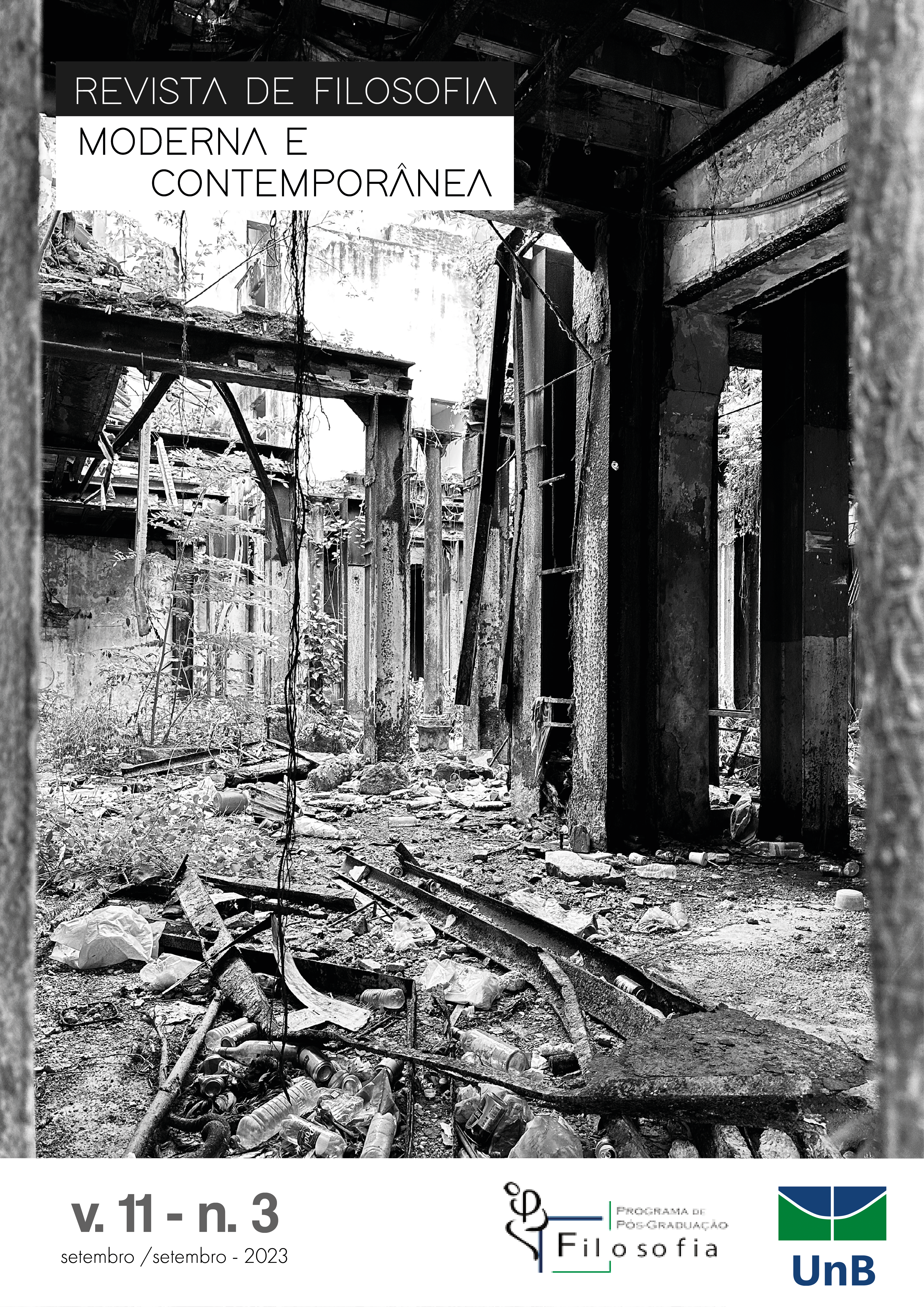Hannah Arendt’s account of the lesson of the Hungarian Revolution
DOI:
https://doi.org/10.26512/rfmc.v11i3.51400Keywords:
Councils. Hungary. Politics. Revolution. Totalitarianism.Abstract
The present article aims to discuss Hannah Arendt’s considerations regarding the Hungary Revolution, an event that brought to the fore the question of the urgency of thinking about new systems of government. The quest for imperialist continental dominance by Russia extended the reach of the totalitarian soviet regime to neighboring countries, which became a kind of satellite of the center in Moscow. In this context of domination, in 1956, a revolution broken out in Hungary. Although it was brutally repressed in weeks, those days were enough for the manifestations of political organizations on the part of the population that, in all its segments, from students, workers from different sectors, intellectuals, army, civilians, formed councils to discuss urgent issues. Based on this organizational initiative highlighted by Arendt as spontaneous, we will analyze what this revolution, which took place in the 20th century, has to contribute to reflections regarding political participation in public spaces and the creation of new political bodies.
Downloads
References
ARENDT, Hannah. Crisis of the Republic. New York: Harcourt Brace & Company, 1972.
ARENDT, Hannah. Origins of Totalitarianism. New York: Harcourt Brace & Company, 1979.
ARENDT, Hannah. On Revolution. New York: Penguin, 2006.
ARENDT, Hannah. Homens em tempos sombrios. Tradução Denise Bottmann. São Paulo: Companhia das Letras, 2008.
ARENDT, Hannah. Ação e a Busca da Felicidade. Tradução Virginia Starling. Rio de Janeiro: Bazar do Tempo, 2018a.
ARENDT, Hannah. Liberdade para ser livre. Tradução Pedro Duarte. Rio de Janeiro: Bazar do Tempo, 2018b.
ARENDT, Hannah. A Condição Humana. Tradução Roberto Raposo. 13. ed. Rio de Janeiro: Forense Universitária, 2019.
BERNSTEIN, Richard. Por que ler Hannah Arendt hoje? Tradução Adriano Correia e Nádia Junqueira Ribeiro. 1. ed. Rio de Janeiro: Forense Universitária, 2021.
BRITO, Carlos Fernando Silva. A relação entre revolução e Estado: crítica de Hannah Arendt ao modelo atual. Griot: Revista de Filosofia, v. 21, n. 3, p. 121-133, 2021a. DOI: https://doi.org/10.31977/grirfi.v21i3.2432.
BRITO, Carlos Fernando Silva. Hannah Arendt: da ação nas tragédias gregas aos conselhos revolucionários. Revista Perspectivas, v. 6, n. 2, p. 118-131, 2021b. DOI: https://doi.org/10.20873/rpv6n2-07.
DUARTE, André. Arendt e a modernidade: esquecimento e redescoberta da política. Revista Trans/Form/Ação, São Paulo, SP, n. 24, p. 249-272, 2001. DOI: https://doi.org/10.1590/S0101-31732001000100017.
JORNAL DA USP. Hungria 1956, a revolução antitotalitária, 23 de outubro de 2006. Disponível em: https://www.usp.br/jorusp/arquivo/2006/jusp781/pag1213.htm. Acesso em: 23 fev. 2022.
RUBIANO, Mariana de Matos. Revolução em Hannah Arendt: compreensão e história. 2016. Tese (Doutorado em Filosofia) – Faculdade de Filosofia, Letras e Ciências Humanas, Universidade de São Paulo, São Paulo, 2016.
STARLING, Heloísa Murgel. Nota Introdutória. In: ARENDT, Hannah. Ação e a Busca da Felicidade. Organização e notas Heloísa Starling. Tradução Virgínia Starling. 2. ed. Rio de Janeiro: Bazar do Tempo. 2018, pp. 7-18.
UNITED NATIONS. Report of the special committee on the problem of Hungary. General Assembly Official Records: Eleventh Session, Supplement n. 18 (A/3592). New York, 1957. Disponível em: https://mek.oszk.hu/01200/01274/01274.pdf. Acesso em: 2 maio 2022.
Downloads
Published
How to Cite
Issue
Section
License
Copyright (c) 2024 Journal of Modern and Contemporary Philosophy

This work is licensed under a Creative Commons Attribution-NonCommercial-NoDerivatives 4.0 International License.
Copyright for articles published in this journal is retained by the authors, with first publication rights granted to the journal. By virtue of their appearance in this open access journal, articles are free to use, with proper attribution, in educational and other non-commercial settings.


